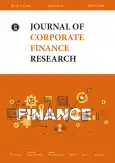The Accounting Reform in Russia. How to Teach Economists?
- Authors: Prosvirina I., Ivanov A., Zaionchik L.Z
- Issue: Vol 15, No 2 (2021)
- Pages: 55-65
- Section: Reviews
- URL: https://journal-vniispk.ru/2073-0438/article/view/303407
- DOI: https://doi.org/10.17323/j.jcfr.2073-0438.15.2.2021.55-65
- ID: 303407
Cite item
Full Text
Abstract
Most post-socialist countries harmonize national accounting standards with IFRS. Many countries are also characterized by a simultaneous use of both national and international standards. The same goes for Russia. Deep reform of national standards has entered an active phase: annually, starting from 2018, several new standards harmonized with the international ones have been introduced. At the same time, former standards remain in force. In such conditions, the process of teaching students majoring in accounting must consider these peculiar features. In the article, we analyze the existing teaching methods and conclude that they are generally focused only on the study of the existing national accounting standards. However, working at enterprises requires knowledge and ability to apply both the existing standards and the standards which will be introduced in the coming years. It is also necessary to know international standards as a methodological basis applied when a matter is not regulated by the national standards. The article highlights the experience of South Ural State University. Since 2016, it has been creating a methodology of intensive teaching bachelors of economics majoring in “Accounting, Analysis and Audit”. The methodology is based on the development of a set of professional competencies intoa set of learning outcomes as more appropriate for the tasks of such teaching. It is characterized byan emphasis on the students’ research and analytical work. Its implementation results in the appearance of a specialist who is quickly adapted to work in large companies. The methodology is applicable in all university departments teaching accounting to bachelors.
About the authors
I. Prosvirina
Author for correspondence.
Email: iprosvirina@mail.ru
A. Ivanov
Email: ivanov.chel@list.ru
L. Z Zaionchik
Email: ivanov.chel@list.ru
References
- Bakaev A.S. On some questions of new chart of accounts for bookkeeping development. Audit = The Audit Magazine. 2015;(3):21–23. (In Russ.).
- Bakaev A.S. Does Russian accounting system have prospectives? Audit = The Audit Magazine. 2015;(4):2–4. (In Russ.).
- Getman V.G. Urgent issues of further development of accounting in commercial entities. Uchet. Analiz. Audit = Accounting. Analysis. Audit. 2016;(1):99–103. (In Russ.).
- Getman V.G. On the issues of further development of accounting in commercial organizations. Upravlencheskii uchet = The Management Accounting Journal. 2016;(1):73–78. (In Russ.).
- Druzhilovskaya T.Yu., Druzhilovskaya E.S. New accounting: Draft new federal standards. Bukhgalterskii uchet v byudzhetnykh i nekommercheskikh organizatsiyakh = Accounting in Budgetary and Non-Profit Organizations. 2017;(5):2–9. (In Russ.).
- Druzhilovskaya T.Yu., Druzhilovskaya E.S. The reform of the Russian accounting of public sector organizations in the transition to new accounting standards. Vestnik Nizhegorodskogo universiteta im. N.I. Lobachevskogo. Seriya: Sotsial’nye nauki = Vestnik of Lobachevsky State University of Nizhni Novgorod. Series: Social Sciences. 2015;(4):18–26. (In Russ.).
- Druzhilovskaya T.Yu., Druzhilovskaya E.S. Reforming normative regulation system of Russian accounting under IFRS. Mezhdunarodnyi bukhgalterskii uchet = International Accounting. 2014;(19):2–18. (In Russ.).
- Sukharev I.R. The importance of introducing IFRS in Russia. Bukhgalterskii uchet. 2012;(3):7–13. (In Russ.).
- Sukharev I.R. New accounting standards: A look into the future. Nalogovaya politika i praktika. 2013;(1):15–19. (In Russ.).
- Khoruzhiy L.I. Analysis of new laws on accounting and taxation in the Russian Federation. Vestnik IPB (Vestnik professional’nykh bukhgalterov) = Bulletin for Professional Accountants. 2017;(5):17–22. (In Russ.).
- Kuzubov S.A. Foresight of the financial professions: Accountant and auditor (Roundtable results). Korporativnye finansy = Journal of Corporate Finance Research. 2016;10(4):7–8. (In Russ.). https://doi.org/10.17323/j.jcfr.2073-0438.10.4.2016.7-8
- Shayakhmetova K.O., Krikunov A.S. Harmonization of economic dimensions as a mechanism for ensuring the comparability of investment objects in the context of globalization. Korporativnye finansy = Journal of Corporate Finance Research. 2017;11(2):46–54. (In Russ.). https://doi.org/10.17323/j.jcfr.2073-0438.11.2.2017.46-54
- Shneidman L.Z. Transition to IFRS: Status and next steps. Finansy = Finance. 2013;(1):6–10. (In Russ.).
- Svyatkovskaya E.Yu. Accounting and assessment of the risk of material misstatement of accounting (financial) statements in a control-oriented accounting system. Korporativnye finansy = Journal of Corporate Finance Research. 2016;10(2):5–26. (In Russ.). https://doi.org/10.17323/j.jcfr.2073-0438.10.2.2016.5-26
- McGee R.W., ed. Accounting reform in transition and developing economies. New York: Springer US; 2009. 521 p.
- Generalova N., Soboleva G., Sokolova N. IFRS-Russian experience: Realities and challenges. In: Innovation Vision 2020: From Regional Development Sustainability to Global Economic Growth. Proc. 25th International Business Information Management Association Conf. (Amsterdam, May 7–8, 2015). King of Prussia, PA: IBIMA; 2015:601–608.
- Campbell R., Owens-Jackson L., Theuri P. Literature review of technology-related research in accounting education: 2010–2020. SSRN Electronic Journal. 2021. http://dx.doi.org/10.2139/ssrn.3802292
- Hoelscher J., Mortimer A. Using Tableau to visualize data and drive decision-making. Journal of Accounting Education. 2018;44:49–59. https://doi.org/10.1016/j.jaccedu.2018.05.002
- Alshurafat H., Beattie C., Jones G., Sands J. Perceptions of the usefulness of various teaching methods in forensic accounting education. Accounting Education. 2020;29(2):177–204. https://doi.org/10.1080/09639284.2020.1719425
- Irving J. Integrating research into an undergraduate accounting course. Issues in Accounting Education. 2011;26(2):287–303. https://doi.org/10.2308/iace-10016
- Vysotskaya A., Prokofieva M. The difficulties of teaching IFRS in Russia. Issues in Accounting Education. 2013;28(2):309–319. https://doi.org/10.2308/iace-50363
- Chen T.T.Y. Is reform in accounting education needed in China and Russia: A literature review. Australasian Accounting, Business and Finance Journal. 2015;9(3):72–83. http://dx.doi.org/10.14453/aabfj.v9i3.6
- Anderson L., Krathwohl D., eds. A taxonomy for learning, teaching, and assessing: A revision of Bloom’s taxonomy of educational objectives. New York: Longman; 2001. 333 p. URL: https://www.uky.edu/~rsand1/china2018/texts/Anderson-Krathwohl%20-%20A%20taxonomy%20for%20learning%20teaching%20and%20assessing.pdf
- Using learning outcomes. European Qualifications Framework Series: Note 4. Luxembourg: Publications Office of the European Union; 2011. 52 p. URL: https://www.cedefop.europa.eu/files/Using_learning_outcomes.pdf
Supplementary files










